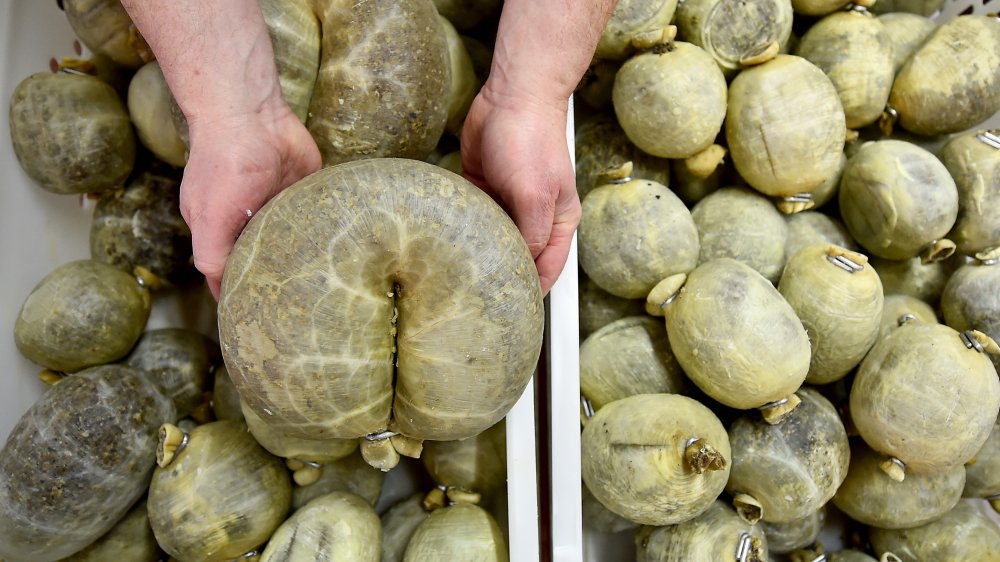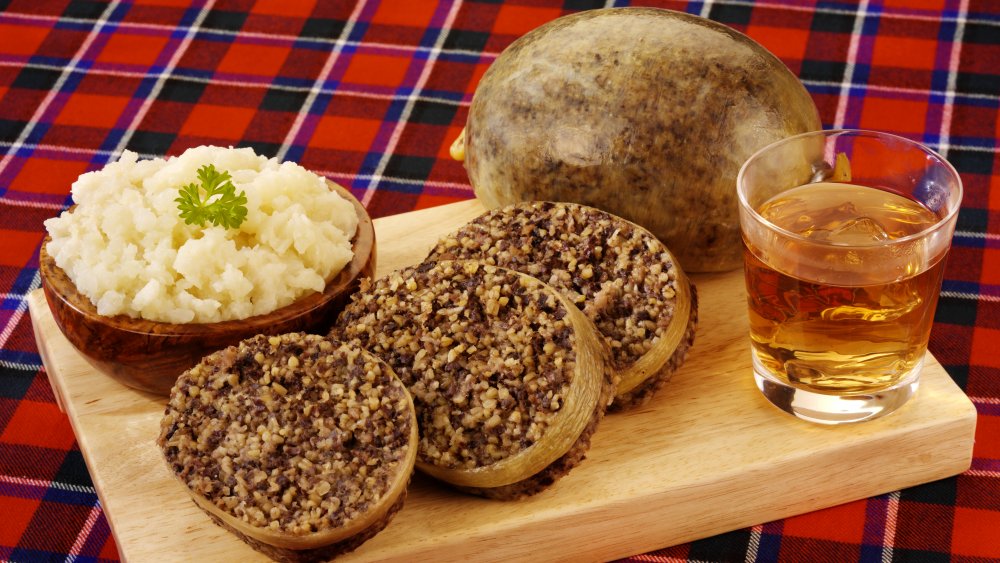The Real Reason Scottish Haggis Might Make A Return To The U.S.
Tradition-loving Scots living in the United States hope they will soon enjoy their most cherished meal without being charged with a crime. Thanks to Brexit, the United Kingdom's decision to exit the European Union, UK leaders are drawing up new trade agreements with the United States and other countries (via BBC). The Brits are pushing the United States to lift a ban on some of the essential ingredients in haggis, which happens to be Scotland's national dish (via Food Navigator).
For those who don't put on their best kilt to attend their local Highland games festival every year, haggis is a meat pudding consisting of sheep or lamb liver, heart, and lungs, minced with onions, oatmeal, animal fat, and spices, according to the BBC. As a writer for Vice learned on a trip to Scotland, haggis is "all the parts of the sheep you wouldn't want to eat, boiled inside its stomach."
Haggis recipes date back at least to the 15th century, and the dish was popularized in the 1700s by impoverished Scottish peasants who didn't want to waste any part of the animal (via History Today). Nowadays, Scottish Americans celebrate Burns Night every January 25 with some version of haggis. But purists view these variations (for example, vegetarian haggis) as heresy (via BBC). Some American Burns Night partiers resort to smuggling the real thing across the border (via The New York Times).
Americans can't get real haggis because of a ban on sheep lung
Why can't Americans get authentic haggis? British lamb has been banned in the United States since 1989, after an outbreak of bovine spongiform encephalopathy, also known as mad cow disease (via BBC). Since lamb is merely an alternative to sheep in haggis recipes, the biggest obstacle is a 1971 U.S. ban on sheep lung. Eating lung is a health risk because bacteria from one of the stomachs in a sheep can enter the lung during slaughter. U.S. medical experts warn against eating haggis anywhere unless it's prepared by someone who can confirm the sheep fasted before slaughter (via Berkeley Wellness).
Omitting lung from the recipe might sound like an easy solution, but purists reject the idea. "If it hasn't got lamb's lung, it isn't haggis," a haggis producer told the BBC. Lung gives haggis its distinctive, crumbly texture. American-made haggis, on the other hand, usually feels more like a pate.
While hopes may be high for stateside haggis lovers, thanks to Brexit, they have been disappointed before. The UK routinely asks the USA to allow haggis, but lobbying efforts in 2010, 2013, and 2014 all fell short. The UK is trying to wrap up its international trade deals by the end of this year. The U.S. is saying a deal likely won't happen before the November presidential election. We'll see if the U.S. government's taste for lung changes in the near future.

